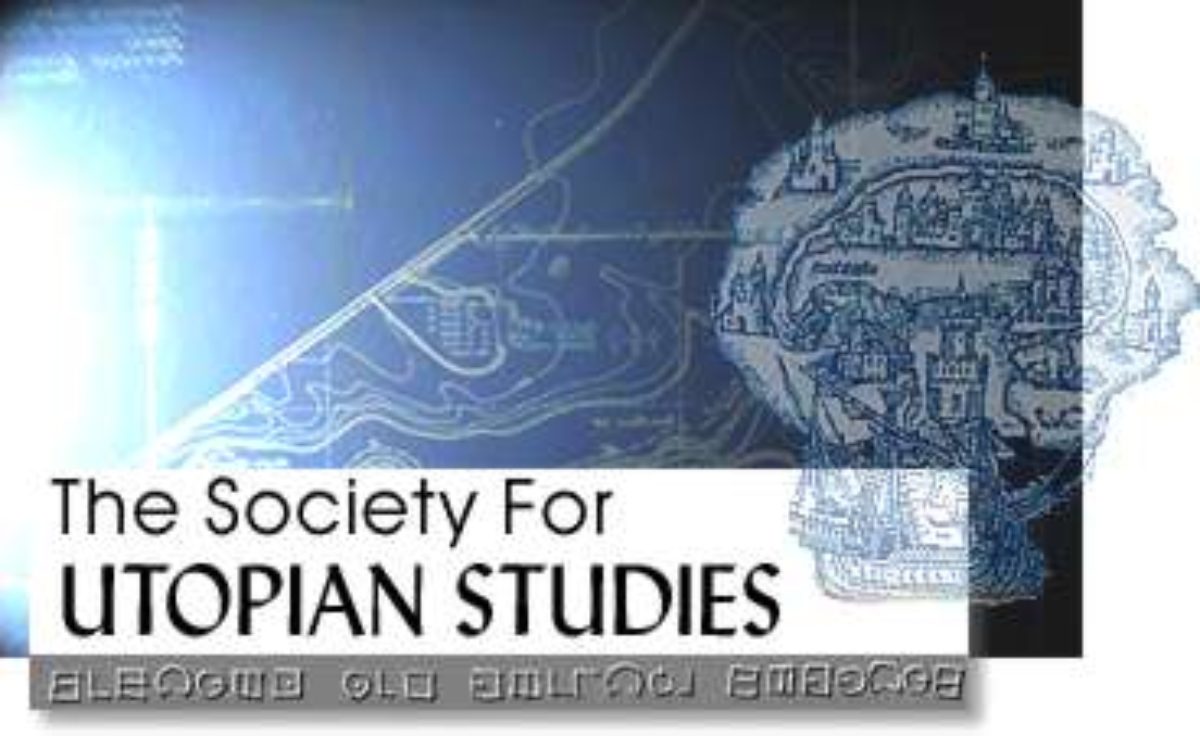Arthur O. Lewis Award
Entries are requested for the Society for Utopian Studies’ Arthur O. Lewis Award. Eligible presenters at the 2019 Annual Meeting in East Lansing are encouraged to submit their work for consideration. Additionally, if you heard an excellent paper by an eligible scholar, please encourage the presenter to submit it to the Awards Committee. Details about the award are below.
Each year the Society for Utopian Studies presents the Arthur O. Lewis Award for the best paper by a younger scholar (generally defined as untenured) given at the annual meeting of the Society. Arthur O. Lewis was one of the founders of the Society and served as its Chair on more than one occasion.
To apply for this award, send a PDF of your revised paper by March 15th, 2024, to the Awards Committee Chair, Mark Tabone, at mtabone@utk.edu. Revised papers must be article-length, approximately 20-25 pages, with citations. Winning essays will be considered for publication in Utopian Studies.
The Arthur O. Lewis Award has been presented to:
2022
Award suspended due to COVID-19
2021
Award suspended due to COVID-19
2020
John Mark Robison, “The Neoliberal Utopianism of Bitcoin and Modern Monetary Theory”
2019
Raphael Kabo,“‘Life!Life! Life!’: The Precarious Utopianism of Kim Stanley Robinson’s New York
2140″
2018
Clint Jones, “From Scalawag to Seasteader: Pirate Societies as a Blueprint for Modern Conceptions of Utopia.”
2017
Verena Adamik, “From Utopian Island to Global Empire: Alex Garland’s The Beach”
2016
2015
2014
Graham Jensen, “Ursula K. Le Guin’s The Dispossessed, Exile, and the Kunstlerroman Tradition”
2013
Sarah Hogan, “What More Means Now: Utopia, Occupy, and the Commons”
2012
Wylie Lenz, “The Utopian Hobo Enclaves of Jack London and Upton Sinclair”
2011
Mark Tabone, “Delany’s New Worlds Revisited”
2010
2009
Stephanie Boluk, “Blondie and the End of History”
2008
Kurt Rahmlow, “Co-opting the Cooperative: Vincent van Gogh and the French Labor Movement”
2007
Christine Nadir — “Utopian Studies, Environmental Literature, and the Legacy of an Idea: Educating Desire in Miguel Abensour and Ursula K. Le Guin”
2006
Catherine Whitley, for her paper entitled “Utopia = Posthuman/Postgender?”
2005
Jennifer Atkinson, for “Seeds of Change: The New Place of Gardens in Contemporary Utopia”
2004
Sing-chen Lydia Chaing, for “Utopia and Hererotopia in a Tenth-Century Chinese Encyclopedia”
2003
Sonja Fritzsche, for “Utopia, Dystopia, and Ostalagia: The Pre- and Post-Unification Visions of East Germany Science Fiction writer Alexander Kroger”
2002
Anna Vaninskata, for “Janus-Faced Fictions: Socialism as Utopia and Dystopia in William Morris and George Orwell”
2001
Dina Smith, for “Lost Trailer Utopias: The Long Long Trailer and Fifties America”
2000
Rob Breton, for “Work Perfect: William Morris and the Gospel of Work”
1999
1999 Gib Prettyman. “Incorporation in the Gilded Age Utopian Imagination.” Published as “Gilded Age Utopias of Incorporation” in Utopian Studies 12.1 (2001): 19-40.
1998
Ashlie Lancaster. “Instantiating Critical Utopias.” Published in Utopian Studies 11.1 (2000): 109-119.
1997
Rebecca Totaro. “English Plague and New World Promise.” Published in Utopian Studies 10.1 (1999): 1-12.
1996
Nicole Pohl. “‘Sweet place, where virtue then did rest’: The Appropriation of the Country-house Ethos in Sarah Scott’s Millenium Hall.” Published in Utopian Studies 7, no. 1 (1996): 49-59.
1995
Beatriz de Alba-Koch. “The Dialogics of Utopia, Dystopia and Arcadia: Political Struggle and Utopian Novels in Nineteenth-Century Mexico.” Published in Utopian Studies 8, no. 1 (1997): 19-30.
Jeremy Stolow. “Utopia and Geopolitics in Theodor Herzl’s Altneuland.” Published in Utopian Studies 8, no. 1 (1997): 55-76.
1994
Darby Lewes. “Worlds Apart: Contrasts in British and American Utopian Texts by Women.” Published as Chapter 4 of her Dream Revisionaries: Gender and Genre in Women’s Utopian Fiction, 1870-1920. Tuscaloosa: University of Alabama, Press, 1995.
1993
June Deery. “Ectopic and Utopic Reproduction.” Published in Utopian Studies 5.2 (1994): 36-49.
Scott Kelley. “Photo-Utopia and Poetic Representations of the Impossible: The Utopic Figure in Modern Poetic and Photographic Discourse.” Published in Utopian Studies 6.1 (1995): 1-18.
1992
Darby Lewes. “Middle-Class Edens: Women’s Nineteenth-century Utopian Fiction and the Bourgeois Ideal.” Published inUtopian Studies 4.1 (1993): 14-25.
1991
Kristine Anderson. “Encyclopedic Dictionary as Utopian Genre: Two Feminist Ventures.” Published in Utopian Studies2.1&2 (1991): 124-130.
1990
Robyn S. Roslak. “Organicism and the Construction of Utopian Geography: The Role of the Landscape in Anarcho-Communism and Neo-Impressionism.” Published in Utopian Studies 1.2 (1990): 96-114.
Richard Toby Widdicombe. “Eutopia, Dystopia, Aporia: The Obstruction of Meaning in Fin-de-Siècle Utopian Texts.” Published in Utopian Studies 1.1 (1990): 93-102.
1989
Peter Bergmann. “Utopianism and Defeatism in Friedrich Nietzsche.” Published in Utopian Studies IV. Edited by Lise Leibacher-Ouvrard and Nicholas D. Smith (Lanham, Maryland: University Press of America, 1991), 22-29.
James J. Kopp. “Edward Bellamy and the New Deal: The Revival of Bellamyism in the 1930s.” Published in Utopian StudiesIV. Edited by Lise Leibacher-Ouvrard and Nicholas D. Smith (Lanham, Maryland: University Press of America, 1991), 10-16.
1988
Erika Gottlieb. “The Function of Goldstein’s Book: Time as Theme and Structure in Dystopian Satire.” Published in Utopian Studies III. Edited by Michael S. Cummings and Nicholas D. Smith (Lanham, Maryland: University Press of America, 1991), 12-19.
Libby Falk Jones. “Breaking Silences in Feminist Dystopias.” Published in Utopian Studies III. Edited by Michael S. Cummings and Nicholas D. Smith (Lanham, Maryland: University Press of America, 1991), 7-11.
1987
Robert Shelton. “Aesthetic Angels and Devolved Demons: Wells in 1895.” Published in Utopian Studies II. Edited by Michael S. Cummings and Nicholas D. Smith (Lanham, Maryland: University Press of America, 1989), 1-11.
